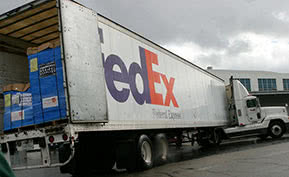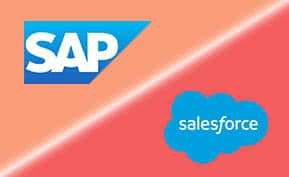Choosing Accounting Software: A Buying Guide
When it comes to buying accounting software, you have a number of things to consider. This accounting software buying guide provides tips on defining you objectives, researching vendors, choosing on-site or on-demand.
What Can Accounting Software Do For Me?
Standard functions of most accounting software include: invoicing and tracking past-due bills, monthly reporting, credit card processing, customer statement generation, and electronic check writing. As a result of automating these everyday accounting processes, your business will see improved data accuracy and enhanced compliance with industry regulations.
Departmental communication will be streamlined, and staff productivity will increase. More freedom from laborious accounting tasks means more time for your team to focus on managing the budget, analyzing trends, uncovering opportunities for growth and making strategic decisions. In turn, the focus on higher level objectives and goals can lead to higher revenues.
Defining Your Business Objectives and Needs
The critical first step and is to review key business objects and future organizational goals. The selection of new business software is often driven by specific failures within the current system and thus focuses primarily on these requirements. But you’ll also want to take a close look at the long-term goals of your organization and the features of the new software that will help you in achieving those goals. For this reason, scalability is an important consideration: the new software must be able to not only support existing user requirements, but also allow for the future growth of the organization as a whole.
When preparing to purchase accounting software for your organization, be sure to document any special needs your organization has. Documenting your requirements will enable you to effectively communicate with the vendor and evaluate the pros and cons of each software system.
Researching Products and Vendors
When selecting an accounting software solution to fit your organization’s needs, it is important to do your homework. Don’t simply rely on the pitch of a single salesperson to give you the right answer; you will be rewarded for taking the time to review all of the options that exist for accounting software. A report that outlines the products and highlights of the top 10 accounting software vendors can be downloaded for free at business-software.com.
On-Site vs. On-Demand
On-demand accounting software, also commonly referred to as hosted accounting software or SaaS, provides all the same features and capabilities as on-site accounting software solutions. However, it is not installed and maintained at the company’s site. Instead, it is “rented” from a third-party application service provider (ASP), who takes on all responsibility for its deployment, storage, and ongoing administration.
Businesses simply pay a monthly fee to utilize the system and its functions, while the ASP handles the rest. Some advantages to a hosted software system include better affordability, rapid deployment, minimized technical administration, and accelerated return on investment. On the other hand, reduced control over the application and all its associated data; potential security risks posed by lower-quality applications; and increased long-term total cost of ownership.
Advantages of Web-based Software
The popularity of Web-based software continues to increase at a rapid pace. Companies are choosing Web-based accounting systems over client/server solutions for their improved accessibility and portability; ease of use; improved integration with online banking services and other electronic systems; decreased administration; and reduced total cost of ownership.
The term “Web-based software” can actually refer to either of two disparate solutions. These are:
• On-site accounting software packages that are deployed over the Web with a browser front-end, typically via corporate Intranets. These systems are also often referred to as Web-enabled accounting software.
• Hosted or on-demand accounting software solutions that are installed and maintained by a third-party application service provider (ASP), then accessed by end users through the Web.
In the past, Web-based accounting software systems were primarily for smaller businesses who couldn’t afford to buy the many available enterprise-scale software packages on the market. But today’s trends are proving that more and more organizations, both small and large alike, are opting for Web-based accounting solutions to address their most vital financial management needs.
Other Considerations
Today’s accounting software packages are designed to simplify and automate complex, manual financial management processes and improve the accessibility, accuracy, and timeliness of mission-critical financial data.
By streamlining and accelerating vital activities such as budget creation, allocation, and management; cash flow analysis; accounts payable and receivable; management of capital equipment and other assets; and financial reporting, accounting software can dramatically increase the productivity of finance staff members, while improving financial performance management and strategic company planning.
Most of the accounting software applications on the market provide the following features and capabilities, to improve all facets of financial planning, management, control, and analysis: general ledger management, controlling and budget management, cash management, financial forecasting, fixed asset management, compliance management, and advanced financial planning.
Being aware of all of the features that exist in various accounting software products will help you to identify the package that will best meet the needs and requirements of your organization.
[Photo courtesy of pcmag.]





